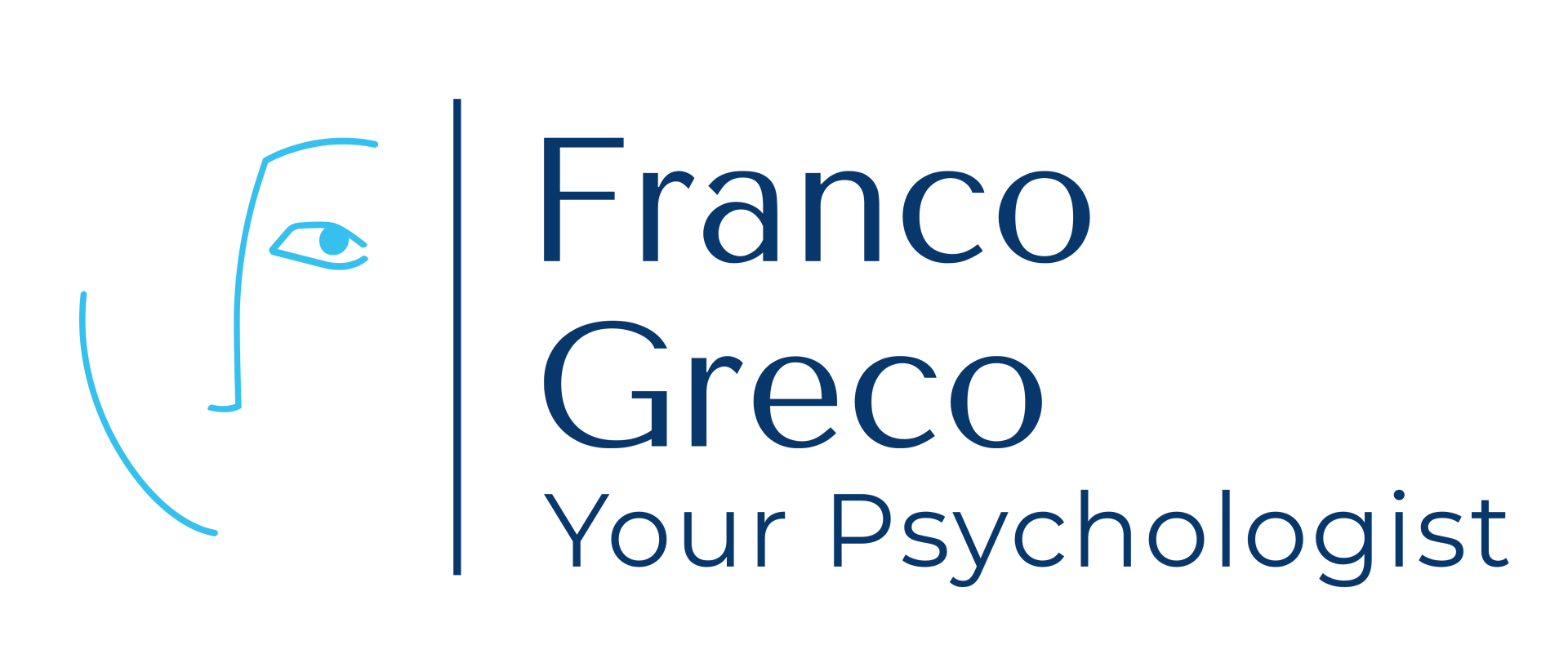Case Study of Julia: Helping Professionals with Workplace Uncertainty Using Schema Therapy

In this case study, we examine a professional — named Julia (named changed to maintain anonymity) — who is facing significant workplace uncertainty due to a sudden and immediate organisational and management changes. Julia is an experienced project manager in a technology company that has recently gone through a merger, leading to restructuring and unclear role expectations. As a result, Julia feels increasingly anxious and uncertain about her career future. Alongside job insecurity, Julia struggles with feelings of vulnerability, stemming from past experiences where she felt emotionally exposed and unable to protect herself in various situations.
Presenting Issue
Julia reports significant stress and anxiety due to the unpredictable nature of her workplace. She is uncertain about her future at her work. She is increasingly questioning her performance and decisions. Additionally, she feels emotionally exposed and vulnerable due to the lack of clear communication from her manager and senior management. Julia has a history of personal experiences where she felt unsupported, which worsens her emotional reactions at work. She reports often feeling overwhelmed, and fearing that this insecurity about her performance will lead to failure or being overlooked or loss of employment.
Schema Therapy Approach
By using Schema Therapy, Franco Greco from Your Psychologist Elsternwick aims to help Julia identify and shift long standing and ingrained patterns (schemas) that negatively affect her thoughts, feelings, and behaviors. Franco identifies early in the sessions that the Vulnerability to Harm or Illness schema is the primary schema impacting her ability to cope with workplace uncertainty. This schema, along with other related schemas, plays a crucial role in her emotional struggles.
Your Psychologist Elsternwick - Assessment Phase
Franco engages in a thorough Assessment Phase in the first few sessions.
- He explores Julia’s personal history, identifying key schemas that are contributing to her current feelings of vulnerability and workplace anxiety.
- Through interviews and questionnaires, the following schemas are identified:
- Vulnerability to Harm or Illness Schema: Julia has a strong belief that something bad will happen to her (e.g., job loss, failure), leading to excessive worry about the future. This schema was developed during childhood due to an unpredictable home environment where Julia often feared illness or family disruptions.
- Abandonment/Instability Schema: Julia has experienced emotional abandonment in the past, particularly during her childhood when key caregivers were emotionally unavailable. This schema is triggered by workplace instability and changes in leadership, leading Julia to fear being left behind or unsupported.
Your Psychologist Elsternwick – Cognitive Restructuring
Franco helps Julia understand the key schemas and changing maladaptive thought patterns that reinforce unhealthy schemas. He also helps Julia recognise the impact of the Vulnerability to Harm or Illness Schema on her responses to workplace uncertainty:
- Vulnerability Schema: Julia is encouraged to examine how true are her fears. While it’s natural to feel uncertainty in the face of organisational change, her belief that something catastrophic is imminent (e.g., job loss or failure) is disproportionate. Franco works with Julia to develop a more balanced perspective, where she can acknowledge potential risks but also understand that the worst-case scenario is unlikely and often more manageable than she believes.
This also reveals that Julia has also Abandonment Schema
- Abandonment Schema: Julia is guided to challenge her fears of abandonment, specifically how the restructuring or management changes (losing a supportive manager) doesn’t mean that she has been left behind. Franco (who has experience working in large organisations prior to becoming a psychologist) works with Julia to recognise that organisational change is common in professional settings and doesn’t automatically mean personal rejection or abandonment.
Your Psychologist Elsternwick – Emotional Processing Through Experiential Interventions
Franco as an experienced and Accredited Schema Therapist understands that because Julia’s schemas are so ingrained from childhood that she needs to help her connect with, understand, and transform deep emotional wounds linked to past experiences.
Franco uses imagery rescripting – a key experiential interventions in Schema Therapy. It involves helping clients revisit and reframe distressing memories or imagery that are connected to their schemas.
- Application: Franco guides Julia to connect her current feelings and emotions at work to past situations where she felt vulnerable or abandoned, such as early childhood events when she felt emotionally unsupported. Julia recalls specific moments when she felt exposed or unable to protect herself from emotional harm from her father. This helps her explain her losing supportive female manager and being replaced by a male manager was so devastating for her.
- Process: During a number of sessions, Julia is asked to reimagine this early childhood experiences with her father leaving her, her mother and younger sister and putting them at risk and financial vulnerability. With Franco’s hlp she envisions her adult self helping her younger self and breaking the cycle of learned helplessness. This was initially with Franco coming in as a father figure and healthy adult that redress and rescript the story of the wounding the absent father. To reassure that everything will be ok and safe. And that she is not alone. This provides the modelling for a healthy adult version of Julia to take charge and comfort and reassure the vulnerable and abandoned little Julia.
- Outcome: This process helps Julia reframe her emotional response to uncertainty, moving from one of helplessness and fear to one of self-empowerment and resilience. By reimagining how she could have responded differently in the past, Julia learns to respond more adaptively in the present.
For Julia, this means addressing the emotional pain from her childhood, which contributes to her Vulnerability Schema and sense of insecurity.
- Julia is encouraged to explore how her childhood fears of unpredictability and exposure to emotional neglect shaped her beliefs about vulnerability. This work helps her separate past emotional experiences from present-day circumstances.
- Franco helps Julia identify feelings of helplessness and powerlessness that arise from her workplace fears, and teaches her how to respond to these emotions in more adaptive ways.
Your Psychologist Elsternwick – Limited Reparenting
As an experienced Accredited Schema Therapist, Franco also uses limited reparenting – where he takes on the role of a supportive, nurturing figure to reparent the Julia by offering compassion, empathy, and validation that was missing in her formative experiences.
- Application: Julia's Abandonment/Instability Schema lead her to feel unsupported, especially during times of workplace uncertainty. Franco offered a nurturing, validating, and supportive role that hr father didn’t reassuring Julia that she is capable of managing workplace changes and that she deserves care and attention, even if her workplace or past experiences lacked this. Also that she trust male role models or males in general in her life.
- Process: During sessions, Franco provided Julia with statements of emotional validation, similar to what a supportive parent or mentor might say. Also asking her about interpersonal reflections about how she felt in the session with a male therapist. What this brought up for her.
- Outcome: Limited reparenting provided Julia with the emotional support she didn’t receive in childhood and helped her internalise a nurturing, self-compassionate male voice. Over time, Julia learns to comfort herself in moments of vulnerability and uncertainty, reinforcing her self-worth and capacity for self-care.
Your Psychologist Elsternwick - Behavioural Interventions
Franco also helps Julia to challenge and modify the behavioural patterns that reinforce Julia's unhelpful schemas, by encouraging Julia to engage in experiments that counteract her fears and anxieties:
- Coping with Uncertainty: Julia is asked to take small, gradual steps to manage her work-related anxiety. For example, she might set short-term goals, communicate openly with her manager about her concerns, and actively seek feedback. These actions test her belief that uncertainty leads to catastrophic outcomes.
- Managing Vulnerability: Julia is encouraged to express her feelings of uncertainty with trusted colleagues or mentors, instead of withdrawing. She practices vulnerability in a safe environment to test her belief that exposing her emotions will lead to rejection or failure.
Your Psychologist Elsternwick - Developing Healthier Coping Strategies
As Julia progresses in therapy, Franco educates and helps Julia to develop further her Healthy Adult by learning practical coping skills to manage her anxiety and vulnerability more effectively:
- Mindfulness and Stress Reduction: Julia learns mindfulness techniques, deep breathing exercises, and grounding practices to help manage the emotional intensity of workplace uncertainty.
- Self-Compassion: Julia works on developing a kinder, more compassionate relationship with herself. She practices self-acceptance, recognizing that it is normal to feel vulnerable or anxious in uncertain times but that she is still capable of navigating these challenges.
- Building Resilience and Confidence: A key focus in Schema Therapy is helping Julia build her emotional resilience. As Julia challenges her vulnerability and abandonment schemas, she begins to develop greater confidence in her ability to cope with uncertainty and change. Over time, she becomes more comfortable embracing ambiguity and handling workplace changes without fear of collapse or failure.
Outcome
As a result of Schema Therapy, Julia experiences several positive changes in how she perceives and responds to workplace uncertainty:
- Decreased Anxiety and Vulnerability: Julia reports feeling less overwhelmed by feelings of vulnerability. While she still experiences some anxiety about the future, she no longer views it as a catastrophic threat.
- Improved Emotional Regulation: Julia becomes more adept at managing her emotions in the face of uncertainty. She uses mindfulness and self-compassion techniques to handle workplace stress more effectively.
- Greater Confidence in Decision-Making: Julia’s belief in her own ability to navigate challenges improves. She starts to trust her instincts and judgment, allowing her to make decisions without excessive worry about potential failure.
- Improved Relationships at Work: Julia’s ability to communicate more openly with colleagues and supervisors improves, helping her feel more connected and supported at work.
Conclusion
This case study illustrates how Schema Therapy can be an effective approach for addressing workplace uncertainty, especially when a Vulnerability Schema is involved.
By helping Julia challenge, repair and reset her deep-seated fears of vulnerability and abandonment, Franco enabled her to develop healthier coping strategies and emotional resilience.
Julia learned to manage her anxiety, build self-confidence, and navigate workplace challenges with greater ease by developing a Healthy Adult version of Julia.
This process not only helped her cope with the current work environment but also laid the foundation for future professional growth and emotional well-being.
If you have a similar experience like Julia,
Franco Greco
from
Your Psychologist Elsternwick is here to help you today.
Contact Information
hello@yourpsychologist.net.au
